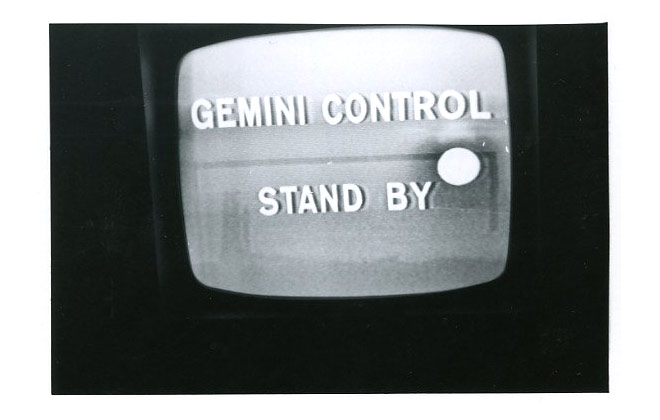social networks

The tension between experience for its own sake and experience we pursue just to put on Facebook is reaching its breaking point. That breaking point is called Snapchat. […]
The temporary photograph’s abbreviated lifespan changes how it is made and seen, and what it comes to mean. Snaps could be likened to other temporary art such as ice sculptures or decay art (e.g., Yoko Ono’s famous rotting apple) that takes seriously the process of disappearance, or the One Hour Photo project from 2010 that has as its premise to “project a photograph for one hour, then ensure that it will never be seen again.” However, whatever changes in the aesthetics of photographic vision Snapchat is effecting are difficult to assess, given that no one really knows what its self-deleting photos collectively look like. In many ways, this is exactly the point.
{ Nathan Jurgenson/TNI | Continue reading }
ideas, photogs, social networks | February 7th, 2013 10:07 am

A number of Instagram’s 90 million active users are in a confused panic after being locked out of their accounts over the weekend, and several seem to believe they’ve been hacked. […]
Your account has been secured and requires account validation. Please login to Instagram.com from your desktop computer to validate your identify.
The desktop validation process then requires the user to upload a photograph of a government-issued photo ID by February 1 — a puzzling requirement for many thread participants, who worried that a hacker was attempting to gain access to their personal information. Which is not the case.
“Instagram occasionally removes accounts due to violation of terms and, depending on the violation, may ask people to upload IDs for verification purposes,” a Facebook spokesperson told CNET. […]
Instagram, like Facebook, requires that its users are at least 13.
{ CNET | Continue reading }
social networks, spy & security | January 29th, 2013 7:42 am

Analysts and observers who are content with cliches characterize Facebook as sitting on a treasure trove of potentially valuable data about its users, which is true enough. The cliched view is that what’s valuable about that data is names associated with locations associated with jobs associated with social networks, in a very granular way. That’s not it. That data can be mined easily from a variety of sources and has been mined relentlessly for years, before social media was even an idea. If an advertiser or company or candidate wants to find “professors who live in the 19081 area code who vote Democratic and shop at Trader Joe’s in Media” they can buy that information from many vendors. If that were all Facebook was holding, it wouldn’t have any distinctive wares, even imagined, to hock. All it could do is offer them at a bargain rate. […]
What Facebook is holding is a type of largely unique data that is the collaborative product of its users and its interface. […]
So what of the other unique information Facebook holds, a record of everything I’ve “liked”? Surely that’s information worth having (and thus worth paying Facebook for) for anyone desperate to sell me products, persuade me to join a cause, or motivate me to make a donation? Not really (or not much), for two reasons. First, because existing sources of social and demographic data are generally good enough to target potential customers. If you know who the registered Democrats with graduate-level education making more than $75,000 a year are in Delaware County Pennsylvania, you have a very good understanding of their likely buying habits and of the causes to which they are likely to donate. If you’re selling something that has a much more granular target market, it’s almost certainly more efficient and cheaper to use a more traditional media strategy or to rely on social networks to sell it for you simply because they’re interested in it. If you’re the budget-photography company YongNuo, you don’t need spend money to mine my Facebook likes and posts to see I’m interested in moving into studio-based strobist photography: existing networks of hobbyists and professionals are sufficient to acquaint me with your products. If you’re trying to sell a Minecraft pendant necklace, your potential customers are going to do a fine job of notifying each other about your product. […]
Social media that have no business model except trying to monetize the information that users provide to them will, sooner or later, be required to breach trust and demolish whatever is useful in their service, to come back again and again with new interfaces and terms of service that lie or conceal or divert.
{ Timothy Burke | Continue reading }
economics, social networks | January 24th, 2013 3:10 pm
social networks | January 23rd, 2013 8:11 am

Reviews on Amazon are becoming attack weapons, intended to sink new books as soon as they are published.
In the biggest, most overt and most successful of these campaigns, a group of Michael Jackson fans used Facebook and Twitter to solicit negative reviews of a new biography of the singer. They bombarded Amazon with dozens of one-star takedowns, succeeded in getting several favorable notices erased and even took credit for Amazon’s briefly removing the book from sale.
“Books used to die by being ignored, but now they can be killed — and perhaps unjustly killed,” said Trevor Pinch, a Cornell sociologist who has studied Amazon reviews. “In theory, a very good book could be killed by a group of people for malicious reasons.”
{ NY Times | Continue reading }
books, economics, social networks | January 21st, 2013 9:57 am
relationships, social networks | January 18th, 2013 1:12 pm

{ 1. Kevin Systrom, co-founder and CEO of Instagram | 2 }
social networks | January 7th, 2013 1:33 pm
economics, haha, social networks | December 17th, 2012 2:15 pm
social networks | December 4th, 2012 5:54 am

A growing number of professionals are using social media to build a personal, public identity—a brand of their own—based on their work. Think of an accountant who writes a widely read blog about auditing, or a sales associate who has attracted a big following online by tweeting out his store’s latest deals.
Co-branded employees may exist largely below the radar now, but that’s changing fast, and employers need to start preparing for the ever-greater challenges they pose for managers, co-workers and companies. Their activities can either complement a company’s own brand image or clash with it. Companies that fail to make room for co-branded employees—or worse yet, embrace them without thinking through the implications—risk alienating or losing their best employees, or confusing or even burning their corporate brand.
Part of this change is generational. Younger employees show up on the job with an existing social-media presence, which they aren’t about to abandon—especially since they see their personal brands lasting longer than any single job or career.
{ WSJ | Continue reading }
photo { Anuschka Blommers & Niels Schumm }
economics, social networks | November 4th, 2012 8:22 am

A worrying trend has emerged in which a writer’s success has come to be measured by the number of views and comments elicited by his or her writing. Those same writers have, in a matter of a few years, adopted a new publishing ethos in which they post their thoughts, opinions, and writings on the plethora of blogging sites currently available. The generation of bloggers, many of whom started out as newspaper writers and later moved to electronic publishing, didn’t stop there—they expanded their commenting activity to their personal Facebook pages. […]
Facebook users find themselves in the position of a superstar or a prophet, needing to utter profound statements and expecting the cheers of the crowd. As it becomes easier and easier for people to connect, this loop tragically kills conversations and exchanges them for the proclamations of ignorant judges who know nothing of the world but their own personal narratives and verdicts.
{ e-flux | Continue reading }
ideas, media, social networks | October 22nd, 2012 10:56 am

The sort of person who says “free speech” when they mean “I like doing creepy things to other people without their consent and you can’t stop me so fuck you ha ha ha ha” is pretty clearly a mouth-breathing asshole who in the larger moral landscape deserves a bat across the bridge of the nose and probably knows it. Which is why - unsurprisingly - so many of them choose to be anonymous and/or use pseudonyms on Reddit while they get their creep on.
{ John Scalzi/Gawker | Continue reading }
social networks | October 17th, 2012 3:01 pm

Bobbi Duncan desperately wanted her father not to know she is lesbian. Facebook told him anyway.
One evening last fall, the president of the Queer Chorus, a choir group she had recently joined, inadvertently exposed Ms. Duncan’s sexuality to her nearly 200 Facebook friends, including her father, by adding her to a Facebook Inc. discussion group. That night, Ms. Duncan’s father left vitriolic messages on her phone, demanding she renounce same-sex relationships, she says, and threatening to sever family ties. […]
Soon, she learned that another choir member, Taylor McCormick, had been outed the very same way, upsetting his world as well.
The president of the chorus, a student organization at the University of Texas campus here, had added Ms. Duncan and Mr. McCormick to the choir’s Facebook group. The president didn’t know the software would automatically tell their Facebook friends that they were now members of the chorus.
The two students were casualties of a privacy loophole on Facebook—the fact that anyone can be added to a group by a friend without their approval. As a result, the two lost control over their secrets, even though both were sophisticated users who had attempted to use Facebook’s privacy settings to shield some of their activities from their parents.
{ WSJ | Continue reading }
photo { Ray K. Metzker }
social networks, spy & security | October 15th, 2012 6:05 am

“If we can utilize Twitter and Facebook to integrate our brand with other established players, we stand to boost our profile in all the key demographics,” said the 33-year-old Brooks, who last night lay in bed staring at the ceiling, tears dripping down his face as he realized the thing he puts so much effort into is so vacuous and void of meaning that his younger self would be disgusted by his pursuit of an occupation that ultimately doesn’t need to exist.
{ The Onion | Continue reading | Thanks Rachel }
photos { Stacy Mehrfar and Amy Stein | Janine Antoni }
haha, photogs, social networks | October 9th, 2012 1:46 pm

The rise of social photography means that we are now seeing images all the time, millions of them, billions, many of which are manipulated with the same easy algorithms, the same tiresome vignetting, the same dank green wash. […]
All bad photos are alike, but each good photograph is good in its own way. The bad photos have found their apotheosis on social media, where everybody is a photographer and where we have to suffer through each other’s “photography” the way our forebears endured terrible recitations of poetry after dinner. Behind this dispiriting stream of empty images is what Russians call poshlost: fake emotion, unearned nostalgia. According to Nabokov, poshlost “is not only the obviously trashy but mainly the falsely important, the falsely beautiful, the falsely clever, the falsely attractive.”
{ Teju Cole | Continue reading }
photo { Nan Goldin }
ideas, photogs, social networks | September 24th, 2012 7:13 am

If you’re unusually insightful and perceptive, like me, you may have noticed that boastfulness is increasingly socially acceptable these days. […]
With so many more channels through which to manipulate one’s public image, it’s not especially surprising that we are tempted to present ourselves as positively as possible. The filters of social media make things worse. A network such as Twitter is designed precisely to connect you with exactly the kinds of people who don’t mind your boasts, while those who might keep you in check won’t follow you in the first place: your audience thus serves as an army of enablers, applauding your self-applause. […]
But, as the Wall Street Journal noted this week, in a worried piece headlined Are We All Braggarts Now?, the causes may be economic, too. In the most competitive job market in recent memory, the pressure to portray yourself as better than everyone else is intense. Predictably, there’s neuroscientific evidence to undergird all this: self-disclosure activates the same brain regions as eating or sex, according to research by Harvard neuroscientists.
{ Oliver Burkeman/Guardian | Continue reading }
photo { Charlie Engman }
photogs, psychology, social networks, technology | August 18th, 2012 2:21 pm

What causes some photos, videos, and Twitter posts to spread across the internet like wildfire while others fall by the wayside? The answer may have little to do with the quality of the information. What goes viral may be completely arbitrary, according to a controversial new study of online social networks. […]
The team built a computer simulation designed to mimic Twitter. In the simulation, each tweet or message was assigned the same value and retweets were performed at random. Despite this, some tweets became incredibly popular and were persistently reposted, while others were quickly forgotten.
{ New Scientist | Continue reading }
social networks | June 18th, 2012 1:44 pm

Researchers have found a way to predict a news story’s popularity — with an astounding 84 percent accuracy.
{ The Atlantic | full story }
images { Twitter Batman | New Twitter bird }
science, social networks, technology, visual design | June 11th, 2012 2:28 pm

Free services in exchange for personal information. That’s the “privacy bargain” we all strike on the Web. It could be the worst deal ever. […]
Why do we seem to value privacy so little? In part, it’s because we are told to. Facebook has more than once overridden its users’ privacy preferences, replacing them with new default settings. […]
Even if you read the fine print, human beings are awful at pricing out the net present value of a decision whose consequences are far in the future. […] The risks increase as we disclose more, something that the design of our social media conditions us to do. […]
Imagine if your browser loaded only cookies that it thought were useful to you, rather than dozens from ad networks you never intended to interact with. […] There’s a business opportunity for a company that wants to supply arms to the rebels instead of the empire.
{ Technology Review | Continue reading }
photo { Leonard Freed }
social networks, spy & security, technology | June 7th, 2012 10:00 am

HorrendousRex
No one seems to have mentioned it, so I’ll point out that this looks like an M4 Carbine with iron sights, without any magazine inserted (and I have to imagine no bullet round chambered, either).
It appears to have no attachments besides the iron sights, which I thought is surprising as I thought that the foregrip and picatinny rail and ACOG scope were standard attachments for the IDF. I would imagine this is because she is a new recruit (mentioned elsewhere in the thread). [Edit: Apparently no M4 attachments are standard in the IDF, they are either soldier-purchased or disbursed for relevant combat roles.]
The gun might also be the M4A1 automatic variant of the M4, but without any modifications I don’t really know how to tell. [Apparently it might also be a short-barreled variant of the M16 - but isn’t that what an M4 is?]
The umbrella stands belong to “Carlsberg” pale lager, a product of the Carlsberg Group. Their motto is “Probably the best beer in the world”, but it is not the best beer in the world.
I’m having trouble identifying the bikinis but the girl with the gun seems to be wearing a mismatched set, as is often the fashion.
The ass is good.
voodoopredatordrones
you just Sherlocked that picture…for no apparent reason
lampkyter
If he really Sherlocked it he would have told us something like how many times she’s had sex.
imatosserama
I can’t definitively say how many times, or if, she has had sex. What I can say is that it is unlikely that either of the two had orgasmed earlier that day.
Look at the way they hold their hips. When a woman orgasms, there is an involuntary relaxation of several of the hip muscles. The hips are carried in a way that looks relaxed and comfortable, rather unlike the somewhat stiff postures we see here. This effect usually lasts for several hours.
Of course, they could have had sex. Quite a lot, even. But it seems unlikely that they reached an orgasm that day. I could be wrong. But it seems unlikely. A more definite conclusion could be reached if we had a video of them walking.
Edit for proof: http://www.ncbi.nlm.nih.gov/pubmed/18637995
{ reddit | Continue reading }
guns, photogs, relationships, social networks | June 1st, 2012 7:35 am





















